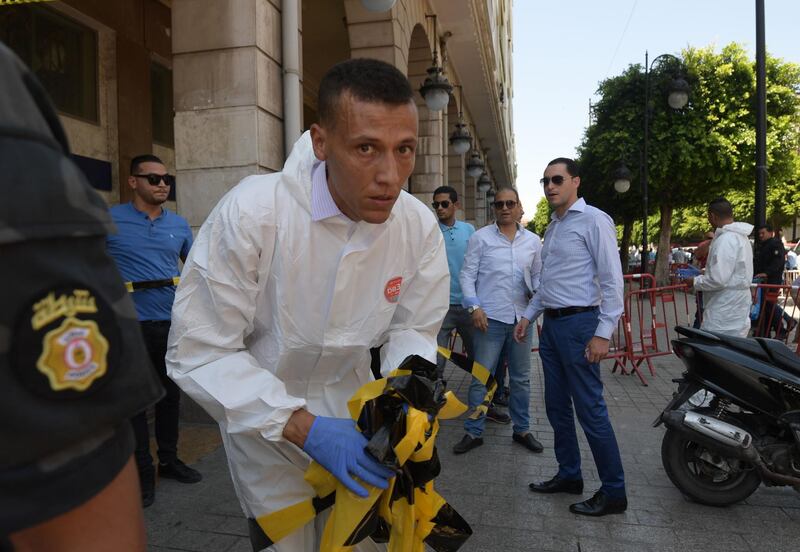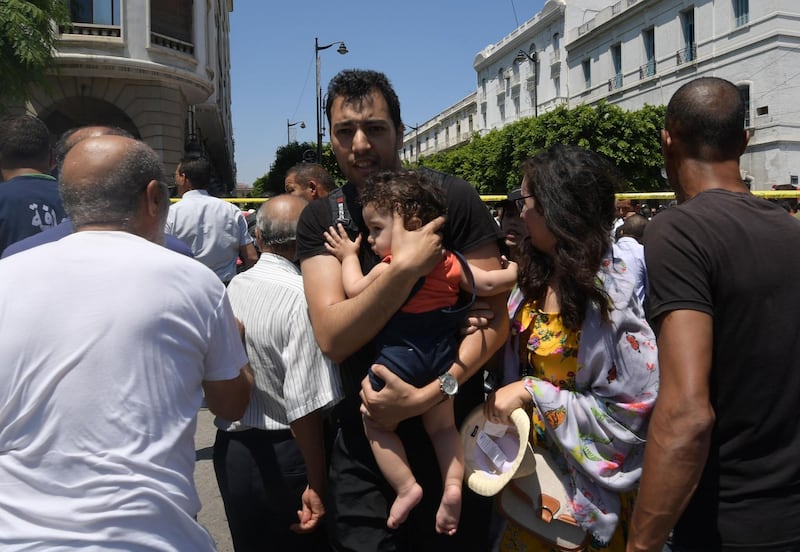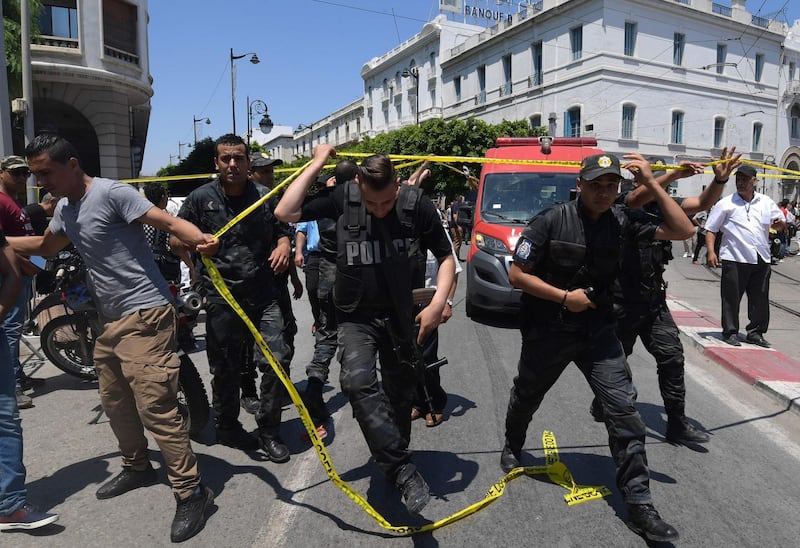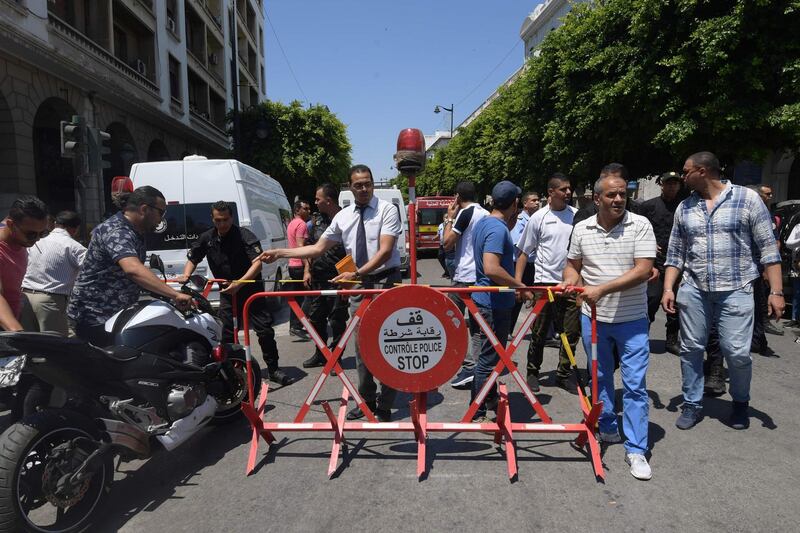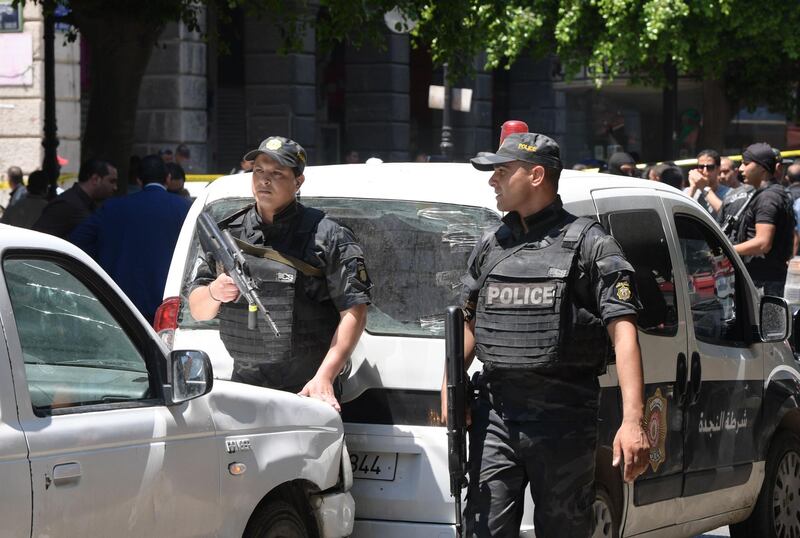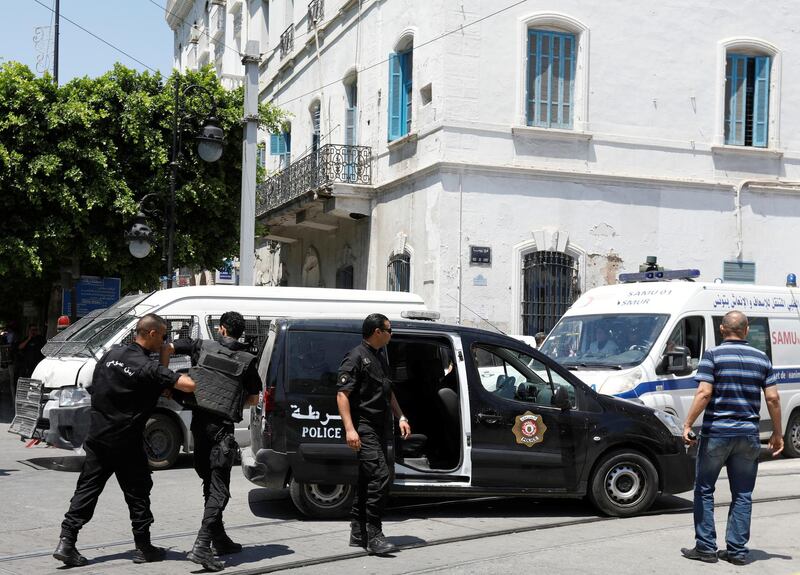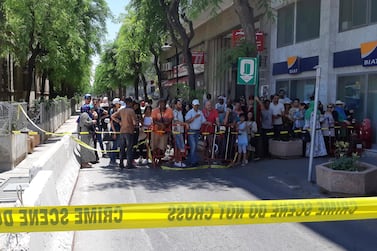Twin blasts rocked Tunisia's capital on Thursday, killing at least one police officer and injuring eight people.
The first explosion hit a police patrol in a popular shopping area in central Tunis, killing an officer and wounding four including three civilians, Interior Ministry spokesman Sofiene Zaag said.
A second blast near the office of the police anti-terrorism squad in Al Qarjani district, on the outskirts of the city, injured four, Mr Zaag said..
ISIS has claimed responsibility for the attacks, US monitor the Site Intelligence Group said.
It is Tunisia's peak tourism season and the country is just months away from two crucial elections. It is Tunisia's first terror attack in about eight months.
Scenes were relatively calm in central Tunis until news of the second blast emerged.
As crowds gathered, many broke into patriotic songs, defiant in the face of terrorism.
Things remained tense in the capital. Heavily armed police sealed off the area, and a large military presence in the city.
An unexplained shot, believed to have come from the police, nearly caused a stampede as crowds fled.
The UAE Ministry of Foreign Affairs and International Co-operation expressed "its condemnation and the denouncement of these acts of terrorism and reiterated its principled rejection of all acts of violence and terrorism".
The ministry said the UAE affirmed its support for the Tunisian people and called for solidarity in fighting terrorism.
French President Emmanuel Macron strongly condemned the attacks, saying France "stands alongside the Tunisian people at this difficult moment".
The US and Germany issued travel warnings after the blasts, telling citizens to avoid the area.
A security cordon was set up, monitored by heavily armed police and the city's metro closed.
In October a female suicide bomber detonated on Avenue Habib Bourguiba, near Thursday's attack.
Tunisia has been battling militant groups near its border with Algeria since an uprising overthrew Zine Abidine Ben Ali in 2011.
Terror attacks in recent years have focused in tourist attractions including a beach in Sousse and a museum in Tunis.
Another was on presidential guards in the capital. All attacks were claimed by ISIS.
Tunisia's President Beji Caid Essebsi was "seriously ill" on Thursday, but the two events are not believed to be connected.
